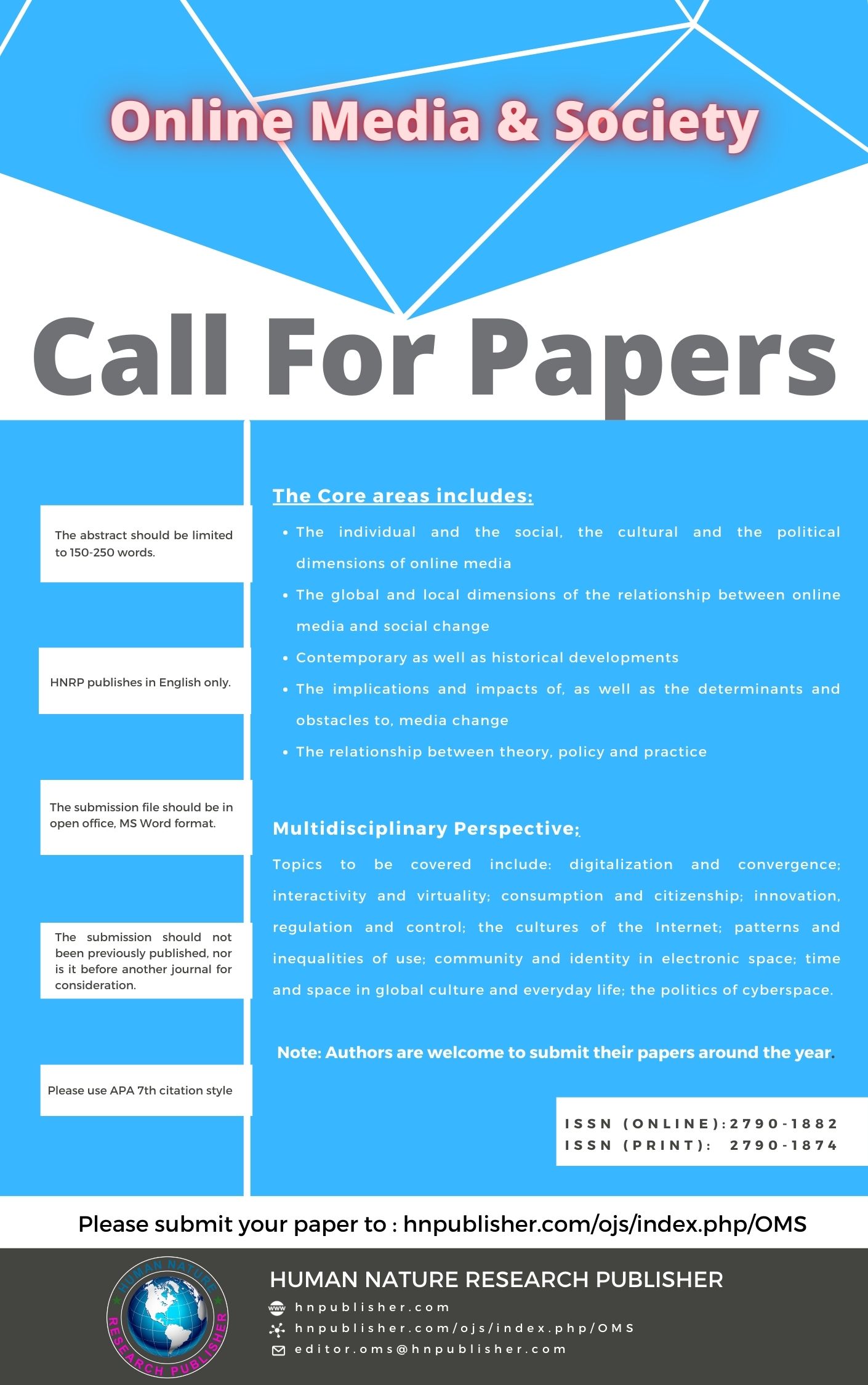Podcasting Faith: Exploring Socio-Religious Discourse in Influential Pakistani YouTube Content
DOI:
https://doi.org/10.71016/oms/55b1r688Keywords:
Podcasting, Socio-religious Narratives, YouTube, Religious Scholars, Pakistan, Thematic Analysis, Discourse AnalysisAbstract
Aim of the Study: This research aims to examine the depiction of religion and socio-religious narratives in popular Pakistani YouTube videos, focusing specifically on religious scholar podcasts. The study emphasizes how these podcasts frame themes related to faith, identity, and contemporary societal issues.
Methodology: An interpretive approach was utilized, with data gathered through the purposive sampling of ten highly listened-to podcasts featuring influential figures such as Nadir Ali and Hafiz Ahmed, including scholars like Mufti Tariq Masood and Dr. Zakir Naik. Discourse and thematic analyses were employed to identify prevalent themes, framing devices, and constructed narratives within the conversations.
Findings: Key observations reveal that these podcasts blend traditional Islamic discourse with modern societal issues, addressing topics such as polygamy, gender roles, and cultural attitudes toward modesty. Framing methods, including narrative and academic framing, are strategically used to engage audiences and contextualize complex religious concepts. The podcasts encourage lively discussions that challenge conventional perspectives and foster critical thinking among listeners.
Conclusion: By situating religious rhetoric within the context of modern challenges, this research highlights the dynamic nature of religion in Pakistan and the role of digital media in shaping public perceptions. The findings contribute to a deeper understanding of how religious narratives are negotiated within an increasingly complex cultural landscape, offering insights into the intersection of religion and modernity in Pakistani society.
Downloads
Published
Issue
Section
License
Copyright (c) 2025 Faiza Idrees, Dr. Rabia Noor (Author)

This work is licensed under a Creative Commons Attribution-NonCommercial 4.0 International License.








